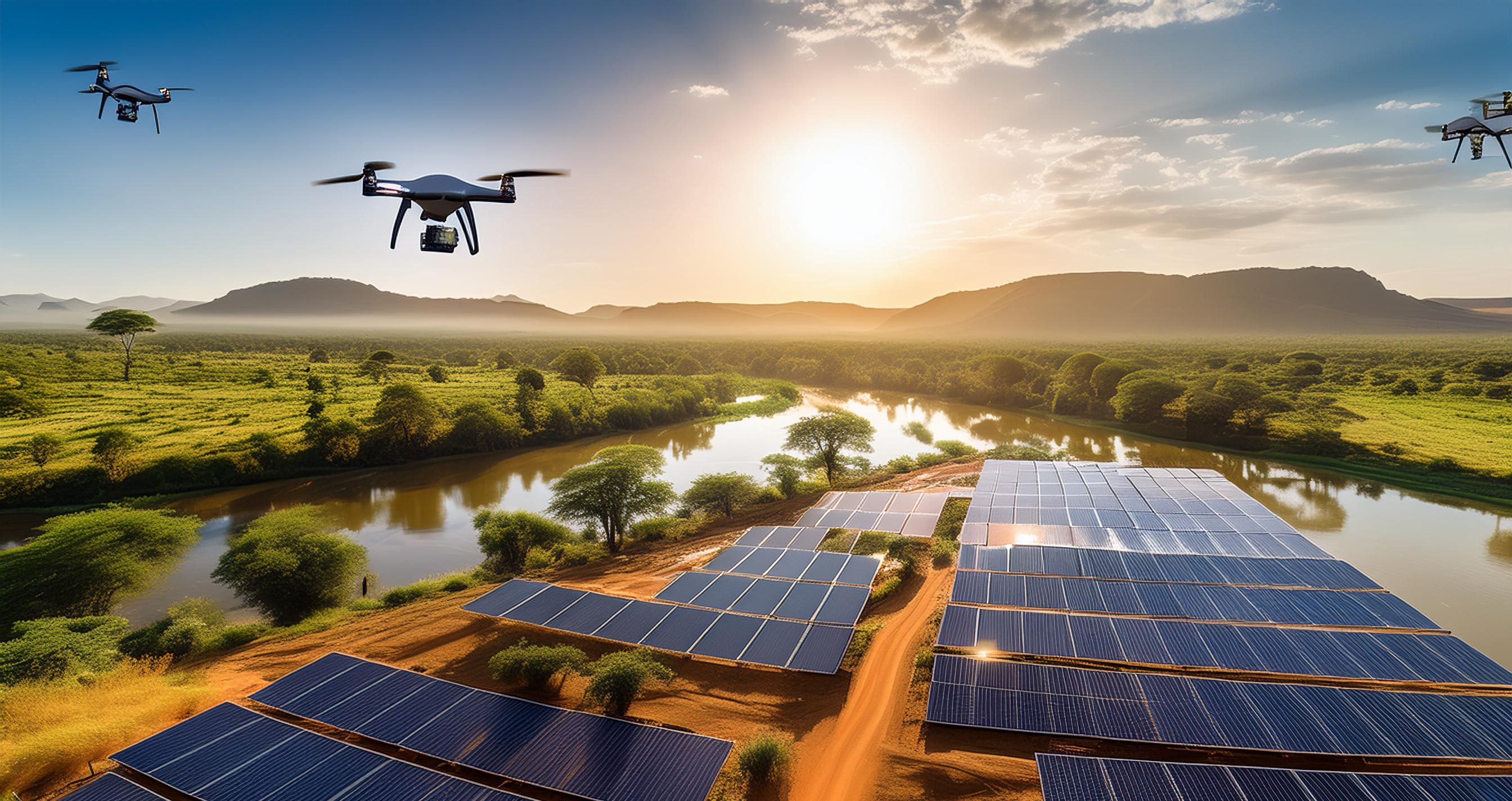
Climate change poses significant challenges worldwide, but its impacts are particularly severe in Africa. The continent faces extreme weather conditions, droughts, and floods that threaten agriculture, water resources, and livelihoods. However, Artificial Intelligence (AI) is emerging as a powerful tool to combat these challenges. This blog post explores the role of AI in addressing climate change in Africa, showcasing innovative solutions and their impact.
Understanding the Climate Crisis in Africa
Africa is highly vulnerable to climate change due to its reliance on rain-fed agriculture, limited infrastructure, and economic constraints. Rising temperatures, erratic rainfall, and increasing frequency of extreme weather events exacerbate food insecurity, water scarcity, and displacement of communities. Addressing these issues requires innovative approaches, and AI is playing a crucial role in this endeavor.
AI-Powered Solutions for Climate Change
1. Precision Agriculture
Keywords: Precision agriculture, AI in farming, smart farming
AI-powered precision agriculture optimizes resource use and improves crop yields. By analyzing data from satellites, drones, and sensors, AI models provide real-time insights into soil health, weather patterns, and crop conditions. Farmers can make informed decisions on irrigation, fertilization, and pest control, reducing waste and increasing productivity.
Example: Kenyan startup UjuziKilimo uses AI to provide farmers with actionable insights, enhancing productivity and sustainability.
2. Climate Prediction and Early Warning Systems
Keywords: Climate prediction, AI early warning, disaster management
AI enhances climate prediction and early warning systems, helping communities prepare for extreme weather events. Machine learning models analyze historical climate data and current weather patterns to predict droughts, floods, and storms. Early warnings enable timely interventions, reducing the impact of disasters.
Example: The African Centre of Meteorological Applications for Development (ACMAD) uses AI to improve weather forecasting and provide early warnings across Africa.
3. Water Resource Management
Keywords: AI water management, sustainable water use, water conservation
AI aids in managing water resources more efficiently. Machine learning algorithms analyze data from sensors and weather forecasts to predict water availability and demand. This information helps optimize water usage in agriculture, urban areas, and industries, ensuring sustainable water management.
Example: South African company BridgIT Water uses AI to monitor water quality and distribution, promoting efficient and equitable water use.
4. Renewable Energy Optimization
Keywords: AI renewable energy, solar power, wind energy
AI optimizes the deployment and operation of renewable energy systems. Machine learning models predict energy production from solar panels and wind turbines, enabling better integration into the grid. AI also helps in maintaining these systems by predicting faults and scheduling maintenance.
Example: Moroccan startup Aceleron uses AI to improve the efficiency and reliability of solar energy systems in remote areas.
5. Biodiversity Conservation
Keywords: AI biodiversity, wildlife protection, conservation technology
AI supports biodiversity conservation by monitoring wildlife and ecosystems. AI-powered cameras and drones track animal movements and detect poaching activities. Machine learning models analyze this data to provide insights into habitat health and the effectiveness of conservation efforts.
Example: The South African organization Peace Parks Foundation uses AI to monitor wildlife and combat poaching in national parks.
Lessons Learned and Best Practices
1. Collaboration is Key
Addressing climate change requires collaboration between governments, NGOs, businesses, and communities. AI solutions are most effective when integrated with local knowledge and practices. Partnerships can provide the necessary resources, expertise, and support to implement AI initiatives successfully.
2. Data Accessibility
Reliable data is crucial for AI applications. Ensuring data accessibility and quality is essential for accurate predictions and insights. Open data initiatives and investments in data infrastructure can enhance the effectiveness of AI solutions.
3. Community Engagement
Engaging local communities is vital for the success of AI projects. Solutions should be designed with input from the communities they serve, ensuring relevance and acceptance. Training and capacity-building initiatives can empower communities to use AI tools effectively.
4. Scalability and Sustainability
AI solutions should be scalable and sustainable. Piloting projects in specific regions and scaling successful initiatives can maximize impact. Sustainability can be achieved through continuous monitoring, evaluation, and adaptation of AI solutions.
5. Policy Support
Supportive policies and regulations are necessary to foster AI innovation and adoption. Governments should create an enabling environment by promoting research, providing funding, and establishing frameworks that encourage AI development and deployment.
Conclusion
AI is a powerful tool in the fight against climate change in Africa. From precision agriculture and climate prediction to water management and biodiversity conservation, AI-driven solutions are making a significant impact. By fostering collaboration, ensuring data accessibility, engaging communities, and promoting scalability and sustainability, Africa can harness the full potential of AI to address climate challenges.
Espiknow AI is committed to supporting these efforts, providing cutting-edge AI solutions that empower African communities to combat climate change effectively.